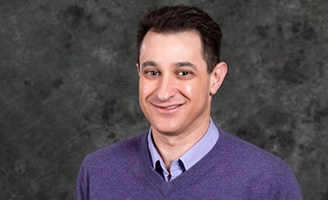


Idaho lawmakers should revisit the state’s marijuana laws. Idaho is already surrounded by states that allow cannabis use in one form or other. Nevada voters agreed Tuesday to authorize the possession and sale of recreational marijuana, with the new law taking effect January 1. It joins Oregon and Washington in permitting the possession and sale of cannabis products for medicinal as well as recreational purposes. Wyoming and Utah allow a legal non-mind altering cannabis extract for medicinal reasons. Montana expanded its medical marijuana law on Tuesday.
We need to ask whether the prohibition against marijuana is worth the cost. We should ask whether both non-hallucinogenic and hallucinogenic marijuana should continue to be treated the same, from a legal perspective, wherein small amounts of any part of a cannabis plant can result in a year behind bars and a $1,000 fine.
The main issue has to do with Idahoans making their own medical choices, and those choices being criminalized. We must ask whether cannabis crimes are worth requiring working men and women to give up their day jobs and sources of income to sit on a jury that will deliberate on a punishment where only the drug user was impacted and where, in many instances, the user is arguably helped through marijuana use.
To fully weigh the answer, it’s important to recognize that not all cannabis users are alike, and not all usages are the same. Some people use marijuana to get high. Some do not. For example, half of the marijuana products available for sale in a typical state of Washington marijuana dispensary are devoid of hallucinogenic properties associated with the mind-altering ingredient Tetrahydrocannabinol (THC).
Some dispensary products contain non-hallucinogenic cannabidiol (CBD) oil, also derived from a marijuana plant. CBD has been used to treat intractable epilepsy, where no other medical treatment has helped. It has been used by patients with Multiple Sclerosis, as well as to treat insomnia and muscle and joint problems. In a similar vein, THC- and CBD-infused lotions and salves are sold to people looking for relief from chronic pain. These items are absorbed through the skin and produce no high whatsoever.
Some marijuana users choose the plant as a safer alternative to chemical-based pharmacological treatments for depression. Some people use marijuana as a non-addictive alternative to highly-addictive, but legal, opioids. And yes, some people choose marijuana as a more pleasant, arguably safer alternative to getting drunk.
The disparity between cannabis users and uses begs the question: Do we really want to criminalize the 75-year-old widow who hasn’t had so much as a speeding ticket, for possession of pot that was intended to mitigate her back pain or treat her glaucoma? Are we willing to arrest the parents of Josh Phillips, the young man from Salmon featured in the short film “Hope Vetoed”? Josh suffers from severe seizures, the kind of seizures that could kill a person, but which have been shown to stop with the help of CBD oil. Do we really want to arrest law-abiding and productive individuals, whose medical conditions require treatment for chronic pain, where the daily choice is between opioid addiction or being arrested for the possession of safer-marijuana?
Increasingly, we need to understand: Is present policy really keeping marijuana at bay, or is it merely inviting Idahoans to visit neighboring states and break the law on their return? Does our current policy help or hurt Idahoans who seek their own remedies to an assortment of medical conditions? Is it moral to deny them the care they seek, and then to charge them with a crime when they succeed in obtaining it? Why does the government of Idaho, where personal responsibility is said to be prized, insist on making medical decisions for its residents?
Marijuana policy is complex, and increasingly so, but the questions about what constitutes the correct policy cannot be answered if they’re never asked.


